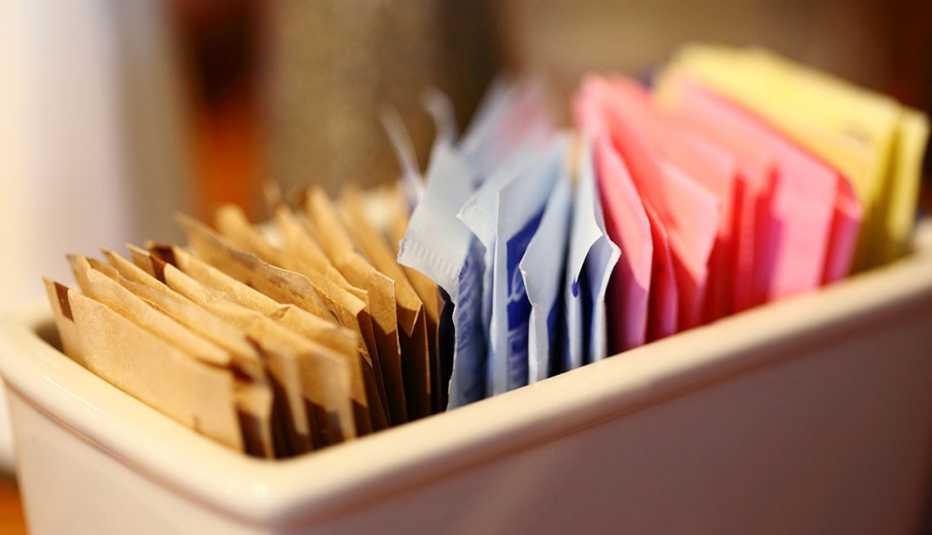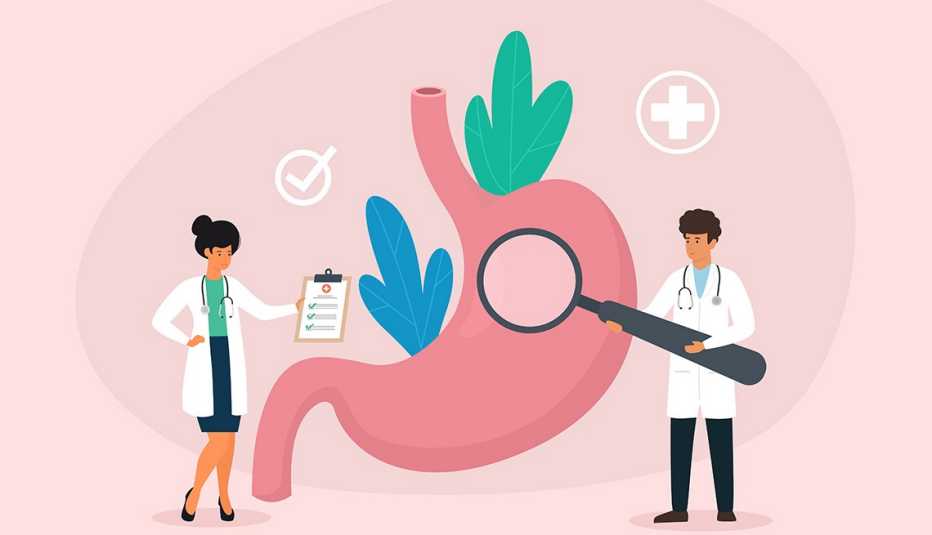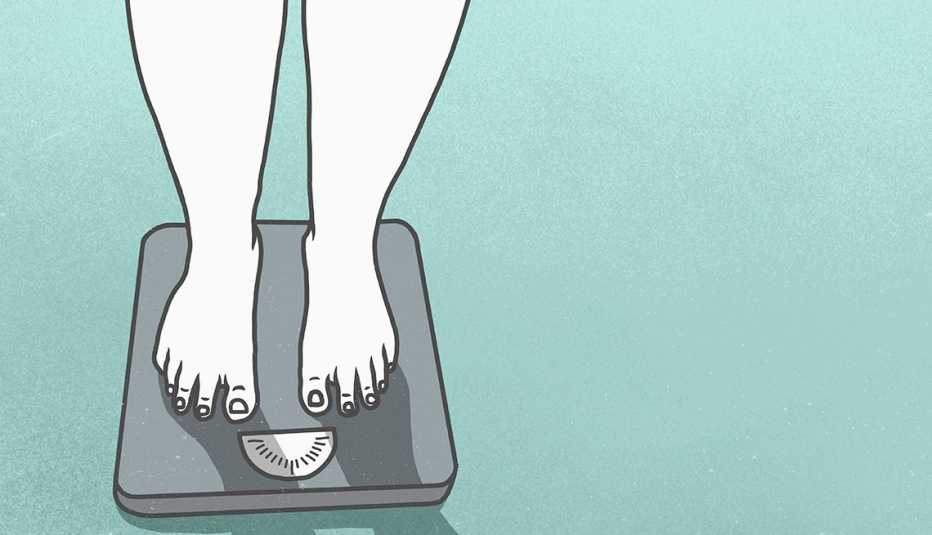AARP Hearing Center
Bloat sounds like it feels. Your belly swells, with gas and fluid pushing out from inside, making it feel as if you are wearing a heavy inner tube around your middle.
Bloating, a sensation of fullness in your abdomen, is a tricky topic, says Lin Chang, M.D., vice-chief of the Division of Digestive Diseases at the David Geffen School of Medicine at UCLA. “Bloating is such a common symptom that can be associated with multiple different diseases or disorders,” she explains, that it is often not used in diagnostic criteria, as it doesn’t help distinguish one condition from another.
What causes belly bloat?
The root cause of your bloat could stem from various issues, or a combination of them, including a lack of fiber in your diet, a food intolerance, irritable bowel syndrome (IBS) or small intestine bacterial overgrowth, or a serious condition such as colon cancer. If you’ve already gotten the clear from a colonoscopy — recommended starting at age 45 — it is likely that this disagreeable symptom comes from a classic gastrointestinal problem. Constipation, one of the main reasons so many people experience gas and bloating, gets more common as you age. According to the American Gastroenterological Association, about 16 out of 100 adults experience constipation symptoms. After age 60, that number rises to 33 out of 100.
Experts say there are a number of reasons digestive issues tend to plague more older people. “With age, we produce less stomach acid, which is responsible for activating certain enzymes that help break down foods,” says Sandra J. Arévalo Valencia, director of community health and wellness at Montefiore Nyack Hospital in Nyack, New York. “When these enzymes are not being activated and the food remains longer in the stomach, then there’s more gas that remains for a longer period of time in the digestive tract,” she says.
Every person is different, and not everyone will have trouble with every food, stresses Arévalo. But if you are curious about possible dietary causes of bloating, consider these seven types of food.
1. Milk, cheese or other dairy foods
Developing lactose intolerance later in life is very common, says Arévalo. With age, we produce less and less of the enzyme we need to digest the lactose (a type of sugar) in milk, she explains. Besides bloating, dairy digestion problems can cause gas, pain and diarrhea.












































































